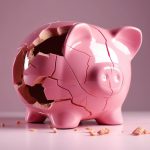By Kelly Gabriel
When you’re feeling overwhelmed by debt and unsure how to deal with it, bankruptcy might be the first option that comes to mind—and that’s completely understandable. It’s the term most people are familiar with, and depending on what they’ve heard or experienced, bankruptcy can seem like either a fresh start or a last resort. But in Canada, there are actually many alternatives to bankruptcy worth exploring before taking that step. Filing for bankruptcy is a serious legal process that can be very hard to reverse if your circumstances change. It’s very important to look at all of your debt relief options so you can make the choice that truly works best for their unique situation rather than rushing into things and finding out what happens when you declare bankruptcy too quickly.
Filing for Bankruptcy is One of Many Options
First things first, no one sets out to get into debt, and it is one of the last things anyone wants to talk about. So when financial challenges arise, it can feel like you’re left to face your debts completely on your own. But are you really? Thankfully, there are several ways to get help. Debt consolidation, settlements, and structured repayment plans offered by non-profit credit counselling agencies are all designed to support you. These options can make it easier to manage what you owe by providing interest relief or even reducing your total debt balance, helping you move forward with certainty.
A lot of people commonly ask why they should even bother repaying their debt when they could just file for bankruptcy and be done with it. The truth is, every situation is unique, and there are times when bankruptcy is the best option for a bad situation. But if you own assets or have the means to pay back even a portion of what you owe, bankruptcy may not be the easy escape it’s often perceived to be. It’s not a one-size-fits-all solution, and it comes with its own serious consequences.
Impacts and Ripple Effects of Declaring Bankruptcy in Canada
Bankruptcy is a formal legal process handled through the court system, and once filed, it becomes a permanent and publicly searchable record. It also doesn’t necessarily cover all types of debt and can severely impact your credit. Typically, only unsecured debts are included, but certain obligations—such as student loans less than seven years old, court fines, some legal judgments, government benefit overpayments, and child support arrears—aren’t discharged and must still be repaid. On top of that, your income level can affect the process. If your earnings increase before you’re officially discharged, it can impact how much you have to repay and how long the process takes. Once complete, a record of the bankruptcy stays on your credit report for 8 to 9 years, making it much harder to access new credit. If you do qualify, expect higher interest rates, stricter terms, and a greater chance of being declined.
Declaring bankruptcy in Canada currently comes with a base cost of close to $2,000. While it may result in repaying less to your creditors compared to a structured repayment plan, it can take a significant toll on your assets. Whether or not you can keep your home depends on several factors, including your province of residence, how much equity you have in the property, and your income level. In some cases, you may be required to pay additional funds to your creditors before you’re officially discharged from bankruptcy. The same rules often apply to your vehicle and any valuable household items you own.
Read the full article here















